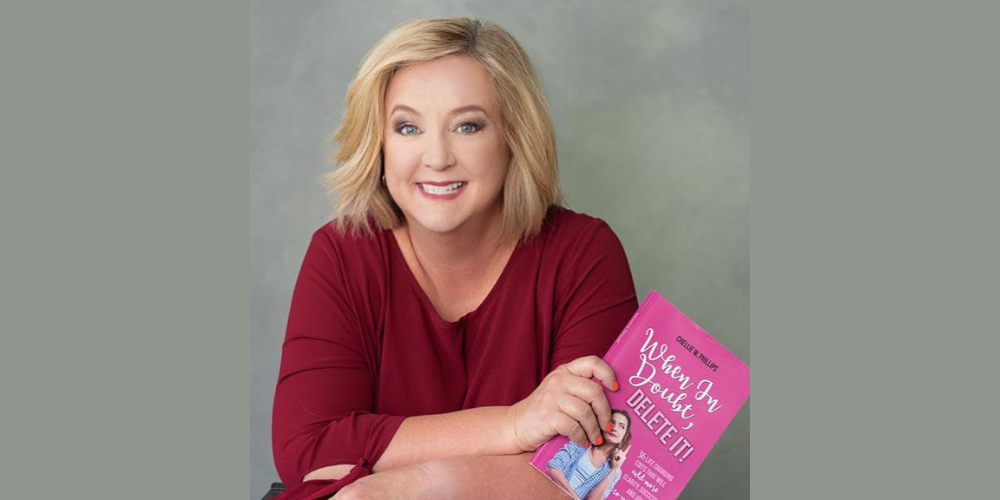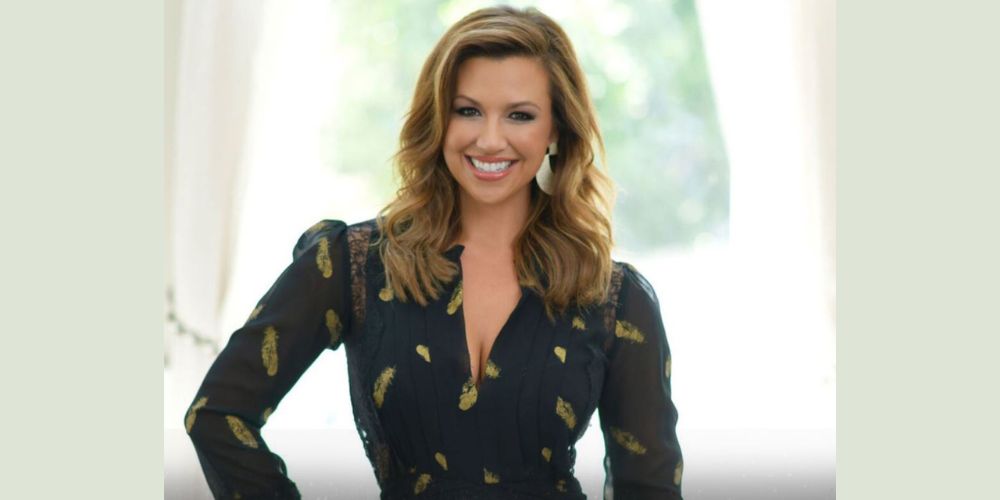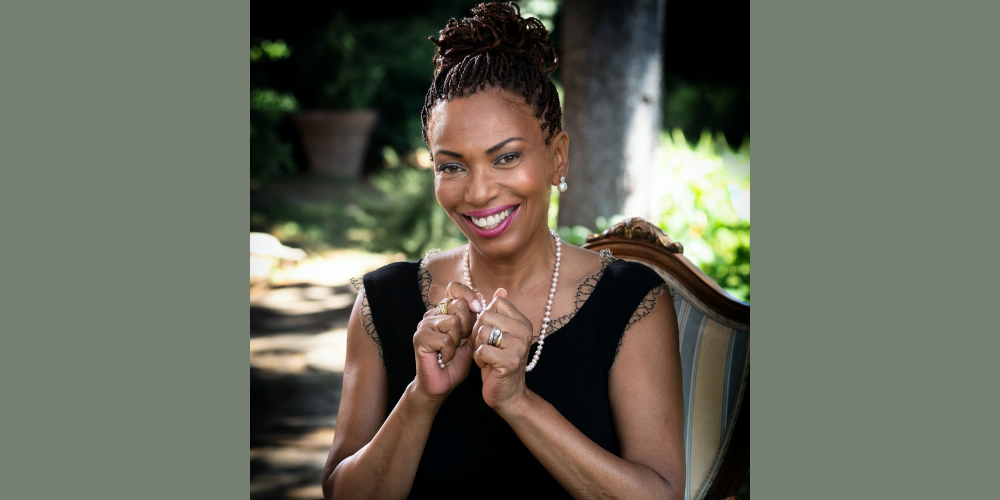Raj Girn: Hi guys. Thanks for tuning in to another great episode of the `Transform Your Confidence Show.` Is showing up on social media a huge roadblock for you because you don’t know how to appear authentic and real among a sea of heavily curated personas? If your answer is yes, then this episode is for you in this second week of April, where our theme is Media and Communications. This week’s Part 2 of this two-part series is entitled Tips from a Celebrity Host on How to Connect Authentically with Virtual Audiences. My guest is one of Canada’s best-loved media entertainment personalities, Sangita Patel.
Here is Part Two of our conversation:
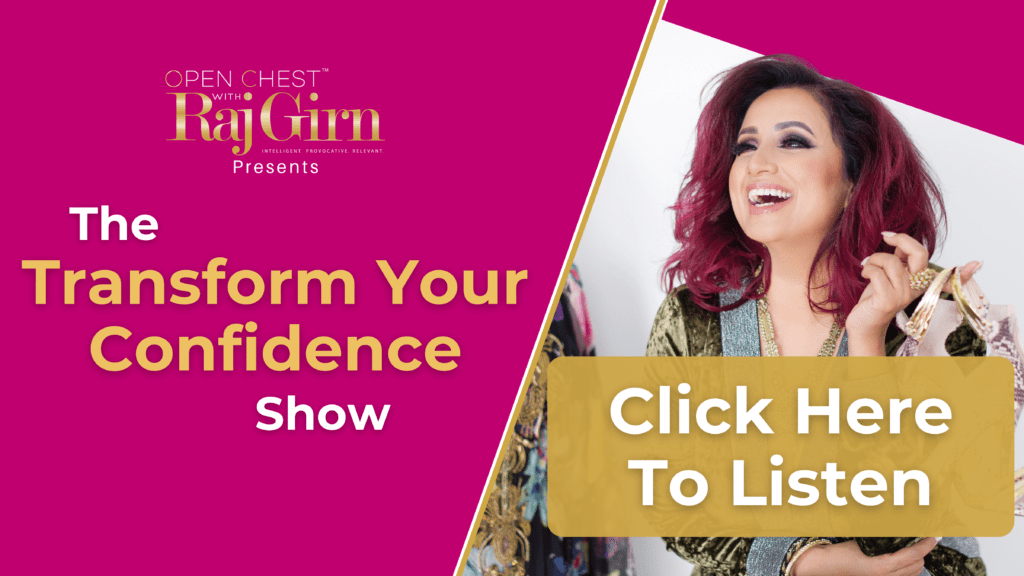
Raj Girn: That kind of eludes to this whole other topic that I feel that we’re challenged with. And this is the hypersensitivity around having an opinion about something. So let me broach that, especially when it comes to social media. And this is definitely something I know you’ve experienced. We’ve broached the topic already about social media. So let’s delve a little deeper there. Social media, I know you’ll agree and you’ve kind of alluded to it already, is the wild, wild West on steroids. I mean, people are extremely supportive on one side or they can be extremely canceling. We’ve seen them both go on. I have a major problem with the canceling part because why is it that one opinion should cancel your entire existence and all the work that you’ve done?
We know people that have been canceled. And to me it’s really like everything’s predicated on one statement or one thing they didn’t do? Like, are you saying that you’ve never done anything wrong? So this is the point I’m making it so amplified. This is why I’m talking about being like being the wild, wild West and on steroids. So my question to you is… I found, especially with my clients Sangita, and I feel that you can help with this. There are a number of my clients who are very shy around the idea of putting themselves out there on social media. But you don’t really have a choice if it’s business that you got to kind of put yourself out there and there afraid to be judged. There’s this fear of being judged. I’m wondering if you have any advice for them being that you’re in the public arena and that this is probably times 10 for the job that you do. What would you say to those people?
Sangita Patel: I get judged every post I do. Every day I get judged on what I’m doing. However, even recently, I did a post about me wearing a langa.
Oh, my God. I remember that.
Yeah. So this person said I was not celebrating my culture and I was an embarrassment to this. And it wasn’t just one post, it was several posts. And I thought, you know what, I’m going to put this out there and see how people actually respond to this, because, again, it’s going to cause that conversation for people to have. And it was such an overwhelming response by everyone. They’re like, “No, this is this person is completely wrong and you should be wearing your langa. You are you celebrating our culture.” But I get negative comments all the time, and it depends how you handle that. So if you’re afraid of being judged, do you care about this one person who is on their keyboard or trolling you or do you care about the conversation you’re causing other people to make change? So, like, you have to decide what’s important to you. So when I get negative comments I deleted them, I don’t even bother keeping them. I don’t communicate with them unless I feel like that… I will say “Everyone’s going through something.
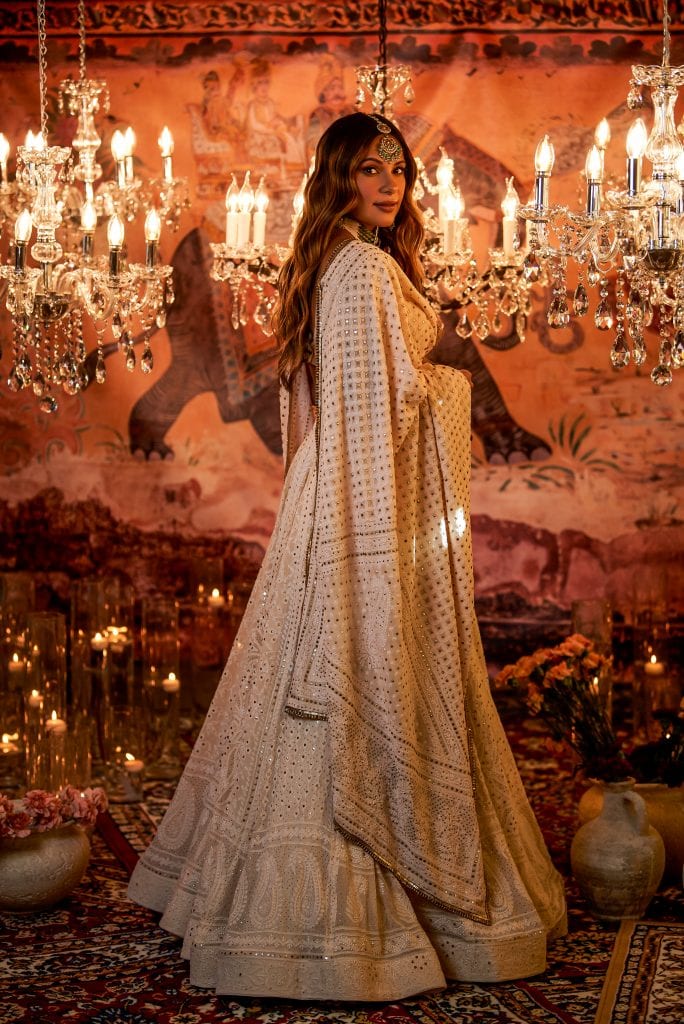
Everyone has things they are going through their lives. Don’t judge them. They’re not bullying you. Bullies need more love than anybody else.” I tell myself that sometimes, just like, “All right, buddy, I got to delete you. I’m done with you.” Like, that’s it. Right? And so it depends. But you have to decide what’s most important, right. If you’re going to be so worried about being judge, how are you going to go forward? How are you able to do what you want to do? Don’t let that one person hold you back. And you know what you’re doing? You’re letting that person make you hold yourself back. Do you really want that? No. And so I think that’s part of it is just you have to let that go and not have that fear. It’s like right now in COVID stepping out of the house is a fear right now. But you’ve gotta take that step forward one day. And so I think that’s what it is. I mean, Raj, in this industry, you’re judged on everything you do and every little step you do. So I’m used to it.
And I think what I’m hearing you say here is it’s almost like tuning into what your own personal value system is about yourself and what you’re willing to accept other people to be able to do. Like you said that, you thought about all the narratives and you try to justify. But at some point when a person is not letting up, you just need to make a decision for your own personal peace of mind and how you decide to delete. And that’s what I do with my clients as well. People say, “Well, I see all these comments that people make and people leave it.” I says, “Well, that is the wrong thing to do.” That’s the problem with the social media, people are afraid to step in and say, you’re in my home right now on my Insta page. You’re in my home right now on my Facebook page.
“Tuning into what your own personal value system is about yourself and what you’re willing to accept other people to be able to do.” ~Raj Girn
If you’re going to come in here and you know you’re going to bring in your dirty shoes, I’m going to remove you. Would you allow someone into your home and insult you? So just because other people leave their comments there, that is not a way to move forward. Like there needs to be some etiquette when someone comes to visit your page. So I completely agree with you. And I would say to people, I say “I delete it left, right and center.” And people always come back to me and say, “Well, you know why did you delete it?” I say, “Because I don’t like what you have to say. And I don’t feel that anyone that’s in my ecosystem needs to listen to your problem with your life.” It’s not something that I’m willing to entertain. I want to entertain those people that are trying and striving to better their existence and the existence of the people that they care about. Because if everybody wants to do that, what a different world we’d live in, Sangita.
It’s true. And you know what’s so funny when you talk about these negative comments, is it does affect you. You read something and you remember those negative moments in your life more than those positive moments in your life. And I think that’s the other thing. As you get older into your 40s, you start switching that mindset. I start remembering more the positive experiences, I start remembering more the positive comments. So it’s being able to let let it go and just let it go and taking that positive energy. If you’re putting that positive energy out there, why not take some of that positive energy? So I think that’s another major adjustment I’ve done in my 40s for sure.
I love that. I want to ask you this, because this is where you’re kind of really in the deep end, Sangita, and this is when you are in your live event situation. I guess two part question. One would be how do you engage with a crowd of people you don’t know and hold that attention? That’s my first question, because you do it so well.
Oh, my. Do I?
Yeah, you do. You’re so entertaining,
You know, I think for me it’s listening to the audience and listening to the the people, listening to the environment. What is it all about? And people are scared to go up to CEOs and just owners. And I’ll be like, “Yo, did you watch the game last night” or “What did you have for dinner?” And they’re just like, you know what… but they never act that way. They’re like, “You know, it’s great. How are you? It’s great to chat with you.” I am not afraid to go up to a CEO and say, “Did you have McDonald’s yesterday?” I am willing to take those… And sometimes I’ve been in rooms where it’s all male and I’m the only female in the room. And I will be like, okay, these are all the CEOs, top tier level people. I am going to go in and talk to them. And that’s what I do. And most times, I think 80 per cent, maybe even more, 95 per cent, they’re going to be responsive. And I think it’s just stepping in and you just start talking. And I think that’s really important. We’re just so afraid that you’re going to be judged for what you’re saying. But it’s usually the opposite effect. And I will email CEOs. I will text CEOs. I will talk with the top tier. I have not spoken to Obama, but I messaged Obama and he’s now following me on Twitter. You just never know. And that status does not. I have no fear. I have no fear when it comes to who you are. I think everyone is the same and I think everyone has something to say. So why not? So I think that’s what it is.
Guys, you’re hearing it right now. “I am not afraid to communicate with people.” That is a statement for anyone out there who is scared of putting themselves out there in the virtual environment, which you have no choice to do today. You’ve got to put it up on your wall. You’ve got to look at it. It needs to be a mantra.
Because it will change your life. I really do believe that, Sangita. And I thank you for sharing that. The other part of that question is when you’re in a live audience situation and you get like a negative reaction, it’s not like social media where you can kind of sit back and say, okay, I’m going to curate my answer here or I’m going to delete them.
You kind of can’t do that. Can you recollect a situation where something may have happened like that and how did you handle it?
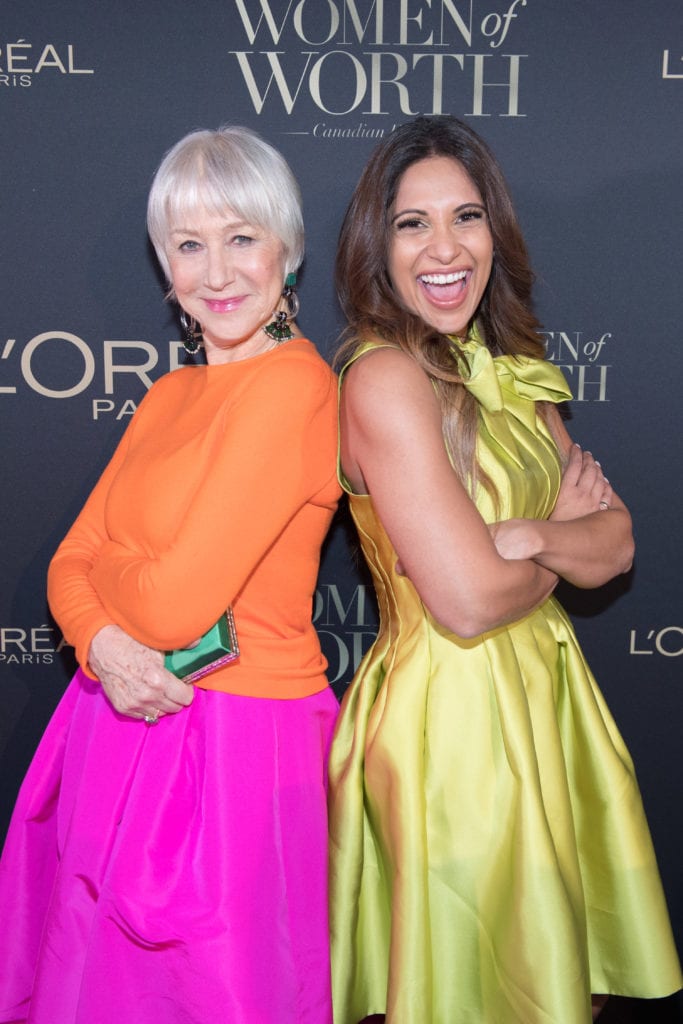
Oh yeah.
Yeah, Talk to me.
Yeah, totally. You know, when you don’t belong in a crowd and you know you don’t belong in a crowd. You’re not an elitist and you walk in and you just came from Shake Shack or whatever. Like, you know, you know, you don’t belong. But I always tell myself “I belong.” And so, yes, I walk into a room and they’re like… I remember I got cold shoulders and I will still continue to communicate. I will talk and say something. And if you get that cold shoulder, you walk away and you go to the next group. But never walk into a room feeling that you don’t belong there because you do every single time you do. And that’s how your attitude should be when you walk into a room. Oh yeah. I’m a brown girl, walking into a room like, are you kidding me. I’m a rare commodity in this industry sometimes if you think of it that way. And of course I think that’s that’s part of the backbone we grow. Even for you, Raj, to create this incredible platform, you had to walk into a room where you probably thought you don’t belong there and you realize you did. So it’s part of that, too. It’s just you do belong.
“You had to walk into a room where you probably thought you don’t belong there and you realize you did.” ~Sangita Patel
Absolutely. You have to command your belonging. That’s what I learned. I used to walk into these rooms and ask for sponsorship money from a whole bunch of people that didn’t even know who brown people were. Why would they give me 20, 30, 40, 50 thousand dollars to sponsor an event and not even with business people or doctors or accountants, but with autism, fashion designers. You know that, right? And the one thing I learned from that, which is kind of what I’m hearing you say here, is have conviction and belief in your narrative and why you’re there and that what is happening in that room is happening to them, not to you. That’s kind of what I hear what you say here.
Yeah. Oh, you know what? It’s owning it. It’s just they’re going to treat you that way. That’s okay. You know what? You you’re there to have a good time, whatever it is, whatever that situation is for you. There’s a reason why you’re there. If maybe it’s a learning curve moment for you. Maybe it’s a moment to make those connections. But let that moment be for you, not theirs. Don’t give it to them.
Oh, my God. Yes.
Don’t do it.
Yes, yes, yes, yes, yes, yes. A big yes. I love, love, love that statement. I want to ask you this. Do you feel that anyone can hone their communications prowess or do you feel that only certain types of people are more aligned to being able to communicate more effectively than others? What’s your experience? And what’s your thought on that?
Introverts very difficult for them to communicate. And I know a few people who are. And I can’t tap into why and I don’t fully understand it. I love working out by myself. I’ll be honest. I am in a space where that’s my time and I need to do that while my husband needs to work out with people. So I consider myself an athlete introvert. Like, I just I love it. I love being by myself. But it’s very difficult for them and it’s hard to teach them to come out of their shells unless they want to. I think that’s ultimately what it is, is your ability to say, yes, I want to do this.
And again, it’s culture, too, like you are brought up a certain way and you just have to break that and just be yourself. And that’s not easy to do after years and years of learning to not speak. This is not your your time. And you have to finally say, yes, I’m allowed. I’m allowed to speak. And I think that’s part of it. And people who are listening right now who do feel like “I just I can’t. I can’t. I cant I cant speak up. I can do this.” Try it once. Maybe go on the street and talk to a stranger and say, “Listen, hey, today, did you watch the Raptors?” Just just try it once and you will see a difference in how you are able to actually communicate. That’s my thing to everybody is just go out and talk to a stranger. That’s my mother. I say, “If you talk to someone you every day you’re going to learn something new every day.” And I still hold to that. So yeah, try it. What’s the worst thing can happen?
“If you talk to someone new every day you’re going to learn something new every day.” ~Sangita Patel
So let me ask you this. I mean you are very much a person that kind of bounces off from people. This is why you are kind of in the perfect career. What about the virtual environment now? Everyone has to work. They have to communicate in the virtual space. Is there anything that you can share in terms of how that communication is different? So you kind of don’t lose that authentic feeling of feeling like you’re communicating real and it’s not online fake stuff. Talk to me about that.
I think more people are real through virtual talk. I feel because we’re all facing the same thing, we’re all feeling the same way. When I’ve been talking to celebrities through Zoom calls and their kids are running behind them or they’re in their kid’s bedroom hiding, whatever it is. I feel there’s this human connection that I never really had the chance when we’re in a hotel room, right? I remember doing it with Russell Crowe. It was 4:30 in the morning and I think he was in Australia and he was in his barn. And I’ve never seen Russell Crowe that way. Like, he’s just him in his barn. And it’s like this is the coolest thing.
So I think people, because we’re going through all of this together, there is an instant connection. And and there’s just this outlet to wanting people… Like my interviews now, the first thing I ask is not how are you? I say, how are you coping? And I think that kind of like Shania Twain said, “No one’s ever asked me that.” And you just kind of let that out because nobody’s ever… and that was something that was important to her. Like you would think a celebrity doesn’t need to be asked that, but we all do. And I also ask the question, “How are you doing spiritually?” Like, yeah, mentally we are all breaking down, but how are you spiritually? And so that’s another question I ask a lot of celebrities and I think they feel it because we feel it too.
Absolutely. Looking back, from the place you are today Sangita, looking back over your career what do you wish you knew about the art of communicating that you feel would have made the journey a bit easier for you in those times and you were kind of really challenged? And let’s look at it from the career trajectory. So if you were to look back, what what would that be?
Well, I think when I first started off. It’s interesting because when I first started off, I was approached by a lot of people who had a lot of experience and they would help me or they would tell me to fix something or do this or this will make it better. And one of those people was Gord Martineau, who was the anchor of 6:00 news at CityTV. And I used to watch Gord growing up and I remember my third day he says, “Patel, come into my office.” Not Sangita, just Patel. “Come into my office.” And I was like, “Oh my God what does he want?” And he goes, “Patel, you don’t give a shit what you do on television. Keep it that way.” And that was it. And I was like, “That’s all you want me to? And he goes, “That’s it.” And I go, “Okay.” And then every few weeks he would just say, “Patel, come into my office.” And he goes, “Why are you yelling into the mic? I know you’re in a crowd, but you don’t need to yell into the mic.” And I’m like, “You’re right. But I can’t hear.” You know, just little things like that. But when he said that don’t change the way you are. That was a very important moment for me because you look around like, oh, this is how this person is doing it. This is how this person’s doing it.
But again, goes back to our original conversation, you just have to be yourself. So I think those are the lessons I learned is when someone’s giving your critique, take it as a positive. When you tell your kids something, they’re just offended. No, we’re trying to make you better. Doing a show like ‘Home to Win’ HGTV. I had an incredible director who pulled me to the side and go try using your voice this way or maybe pausing here and doing this. And most people would be offended by that. But no, I knew he was trying to make me better. And I would be like, “How does this sound? How does this feel?” And I think that’s what is where you let your ego go and say, these are the professionals and they’re going to help you. So I think that I learned that at an early part of my career, but I think that’s important. So I think that’s what I would say in terms of… There’s nothing really I would say that I wish I knew in the beginning. But I think that’s a lesson I always learned. And I think that’s hard for a lot of people to learn is when people give you advice, it’s the goodness for you, not for them.

Yeah. And this is why you keep excelling, sweetheart, because you truly are genuinely there to be the best you can be. And sometimes you can’t see outside of yourself as a human because there’s so many other narratives that you have of yourself that you kind of can’t see beyond what’s in front of you. So what would you tell that version of Sangita knowing what you know today? What would your advice be to her?
My younger self?
Yes your younger self, when you were starting off in this career trajectory, knowing what you know today, what would you say to her that you think may have made a difference and made the journey maybe easier?
I think yeah. And that comes to the emotional part of it all is not caring too much about what other people think. I think that held me back a lot, to be honest Raj, is caring too much. I mean, one of the things my mom used to say to me, if you make other people happy, you’ll be happy. There’s some truth to that, but not all of it. You have to make yourself happy. And I was so into making other people happy I needed their approval. And I said if they agree to it, then that I’m doing a good thing. But no, not everyone out there is there to help you or to make you rise. We talk about women supporting women and how much truth is there. And I do believe there is. I do. I think there is. But certain people no. And that’s again, that’s the oblivious part of this industry, and many industries. I had to learn later in the game and it caught up to me. And I still have to learn that I still care what other people think. And I need to let that go and just stay on my path.
You’re human. We have feelings and we have a certain sense of trust in humanity that we don’t always have to have our guard up. I feel that’s kind of a part of it. So, if you do kind of get those moments when you’re let down, let it be. That’s what I say. I would prefer to be me than that person. That’s what I tell myself.
Agree. Yeah. Yeah. I cried for the first time last year. I just let myself. It’s you know, all of us are mentally going through things. And I and I was talking to a friend of mine and she’s like, just cry it out. So I fake cried for a bit. And I was like “I’m going to try this.” And I put myself in a sad position. And then I’m like “This is not working.” And then something happened and all of it just came out. It was the most incredible feeling after that. I felt this pain just coming out of me and just I felt liberated after that moment. Because we just don’t let ourselves feel those emotions because I’m always like, stay positive, smile. And I do believe in that energy. But sometimes you have to let yourself fall in order to rise up. So you know that that’s part of it, too.
“Sometimes you have to let yourself fall in order to rise up.” ~Sangita Patel
I don’t think that we know that we’ve risen until we’ve fallen. It’s like, how do you know that it’s daytime if you haven’t experienced night? It’s just whole spiritual ideology of yin and yang polar opposites. So I get where you’re coming from. But, honestly, that it’s got to be the most hilarious story that you’ve shared today.
I don’t know how to when I mean when I’m in a room with you, be it virtual or not, because you just make me smile.
Its very hard, especially because you’re a positive person. That’s the other thing. It’s like if you if you’re constantly fighting the fight to feel good about yourself, no matter what we’re going through. So it’s hard to be the person that cries.
And I think that’s part of it too. If anything negative towards you always find a positive in it. If someone says no to me, I’m like, okay, now I could move on. I can go on to the next step. Always find that positive angle and even those moments of that are negative in your life and you’ll find it.
Yeah, absolutely. Because the alternative is not going to serve you.
Not at all.
And, you know, it’s interesting because I feel that we’ve come to the end of our conversation now, Sangita. Boo-hoo, but we have to. But what I want to ask you, is listening to you sharing your thoughts and your insights and just the fact that you’ve been so open and vulnerable on so many levels in this conversation, I feel that your journey, coming from engineering and deciding to do something so polar opposite like getting into the media business and then getting this opportunity of being the first South Asian ambassador in Canada for CoverGirl. I always feel like you are one of those people that can kind of decide that you want the impossible and the impossible just somehow manifests itself because you believe so hard in the fact that it’s possible. Am I right? Give me your insights.
Yeah, it’s so true, I’m such a big believer. I come up with ideas and theories and they’re like, “No, that’s never been done before.” I’m like, “Why not? Why can’t we do this? Why can’t we take this forum? Why can’t a South Asian woman be hosting our own show? Why can’t you why can’t this be?” It’s not normal. And so you need to change the definition of normal and the only person who can do that is you. So, yeah, I’m a big believer, and I always find something that will… Doors are always closed on me. But what do I do with that? And I think that’s a lesson in life is not deteriorating yourself and just keep going. And I don’t stop. One time someone said to me, “You’re too ambitious.” And I go, “Would you ever say that to a guy?”
Right.
Right? No. I am ambitious and I’m proud of that. And there’s nothing wrong with that.
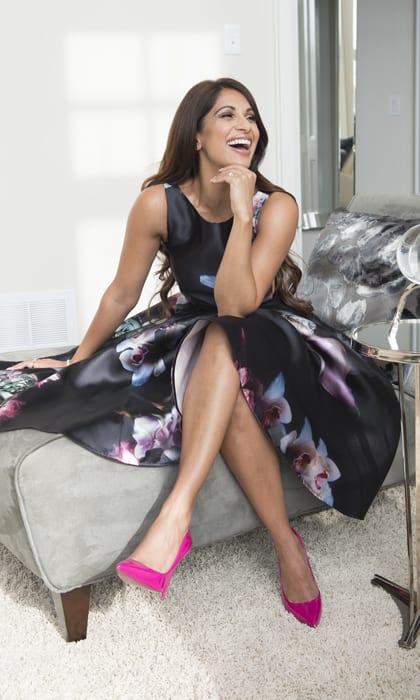
Absolutely. And it’s so interesting because when you first announced the CoverGirl ambassadorship, it was really interesting. It put a smile on my face because the way you announced it was that, “Hey, mom, I’m the first South Asian ambassador for CoverGirl in Canada.” That was your statement. And it says a lot about your belief and how you actually authentically live the identity that you know yourself to be, that you are a mix of two identities and that you’re quite comfortable in that space. Am I right when I say that?
It’s so true. And I think that’s the other thing, Raj, is any success that comes my way I’m overwhelmed. Even if it’s the smallest thing I’m just… And I think it’s that journey of believing and getting those negatives, but I’m always just shocked. I’m just always thankful. Anything that comes my way. It’s just this amazing every time. And I don’t know where that comes from, but it’s never been like I deserve it. I need to change that and actually live with the moment. I think that’s the other thing is I never sit down and say that happened and I think that’s something else I need to change. So, look at this, it’s like good therapy session here.
I`m glad. we’re helping each other. I feel that so many things that you’ve talked about that I want to go away and sit with. It’s beautiful. And this brings us back to the whole idea of why we’re talking today of how important communicating effectively is. And I want to ask you this as we wrap up, Sangita. What is your personal definition of communicating effectively and what would that be?
Yeah, I think it goes back to what we just said, it’s being able to be you and that takes time. It takes time to find your identification or your identity. And it didn’t happen to me just overnight. I knew it was in me, but I didn’t discover it to let it out until my late 30s. And that’s where I felt comfortable to say, this is it. Either you love it or you hate it and this is it. This is who I am. And and that confidence starts building. So I think communication really comes down to the ability to again, you know, when you say you’re worried about being judged or what people think and, you know, I’m just scared, that fear is not really about you yourself. It’s the fear of other people. It’s, again, human nature. But you just have to let that fear go. And that’s really important when it comes to communication.
“When you say you’re worried about being judged or what people think and I’m just scared, that fear is not really about you yourself. It’s the fear of other people. And it’s, again, human nature. But you just have to let that fear go. And that’s really important when it comes to communication.” ~Sangita Patel
I love that. What a powerful statement. It’s the fear of the expectation of other people. That’s so powerful. So to round up, why is it important for people to get it right, to get the whole communications with themselves, with their loved ones, for people they don’t know? Especially that we now live in a world where most of our communications is virtual? Why is it important? What is the crux of it, do you think?
Yeah, that’s what it is. If you don’t communicate like no one’s going to know the truth. It comes down to truth. What is your truth? If you sit back and don’t say anything or if you don’t correct things, even that, it will never be true. Even on social media, like you and I talked about, it’s not the truth. Not all of it is truth. But how are you going to make it truth? And so even when you write down your captions, sit with it for a bit and say, is that my voice? Or did I just cut and paste someone else’s voice? Bring that truth back to you. And I do that. I when I write certain things, it’s my voice. It’s who I am. And some people may not agree with it. I mean, it’s not the perfect English. And I use certain things. I use emojis, whatever it is, but that’s me. Yeah. And so your communication is your truth.
So for upcoming generations, let’s just get ready to close this off. I want your advice on this, sweetheart. To ensure that they’re able to cultivate meaningful relationships online, since that’s kind of where we’re headed. What would you say to that generation, our kids’ generation, so that we’re actually creating still an authentic experience as humans? and we don’t become robotic and hide behind stuff and all this stuff that you finish talking about, about, you know, checking ourselves to make sure that we are, in fact, being true to who we are with all of these ways that we can create image and barrier. What would you say to to to our kids’ generation?
And I think this is what we said earlier. What do you put out there? Is that who you are? Like, you sit back and I ask that question to myself, how am I going to use my voice on social media? What’s my what’s my platform? And I think that’s what most people need to sit back and say, “What am I doing?” And once you do that, I think you’ll find your path. I think the problem right now is we’re just copying everybody else if we’re forgetting who we are and certain things are not going to do well with certain people. And some people are not going to be happy with what you’re doing. That’s okay. I spoke about the racism I dealt with a while back, two years ago. I talked about my miscarriage. Certain things you want to keep up with some points you’re like, I’m ready to speak about it. Those are my stories and these are my stories to help other people use for themselves and hopefully create conversation. So that’s what I think it is, is just finding your voice rather than using someone else’s voice.
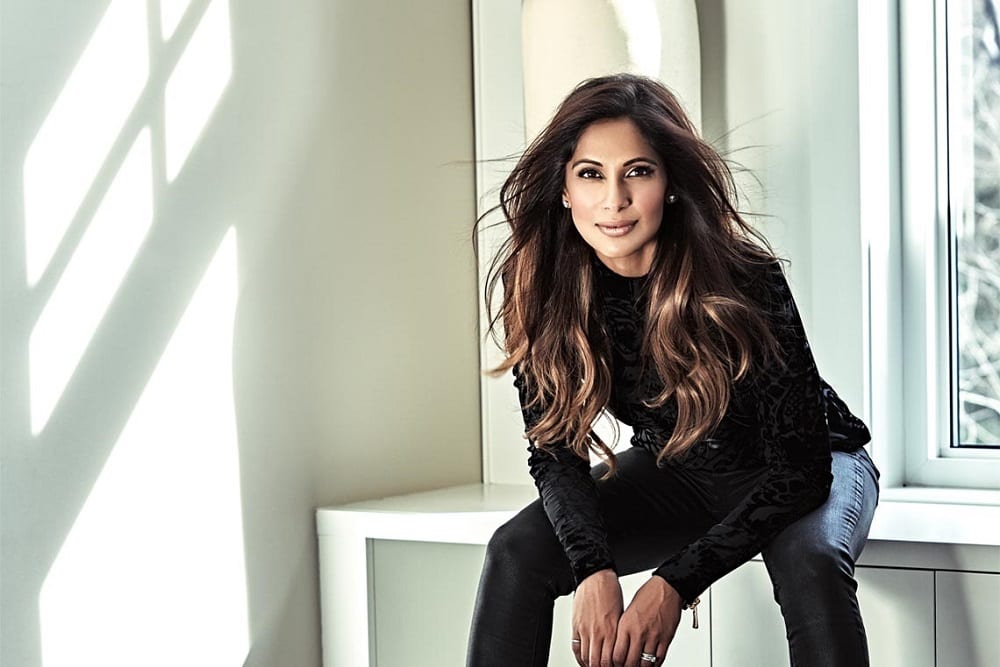
Amen to that sister. That’s a great way to end this. Are there any final words that you want to add at all there?
Just to be happy. Find the joy in everything you do. You are in control of your happiness. And the other thing is…
Fake cry.
Fake cry. Yeah. And one thing I read recently is someone else’s opinion is none of your business. So, there you go.
Absolutely. Sangita Patel what an absolute pleasure you are.
You too, Raj. We’ll go for a drink after this.
Oh, my God. I think we need it. Absolutely.
Happy belated birthday to you.
Thank you so much my love. And thank you so much for your extensive words of wisdom and just being so vulnerable and honest and real. That’s that’s really what I was hoping to get out of this for the audience out there, because it seems to be the hardest thing that people have right now is the challenge of knowing how to communicate to serve themselves. And I feel that you’ve given people a lot of wealth of wisdom. And I am truly thankful for your time. I’m very grateful and I absolutely adore you.
I do too. Raj. Thank you so much.
Thank you so much for staying until the end, guys. I really hope you enjoyed the show and will action the many insights that were shared. There are so many myths about effective communications with the most common being that we all do it, when, in fact, very few of us have been schooled in the art of communicating, let alone doing it effectively, because this is another life skill that traditional academic curriculum doesn’t include.
So we are left picking up how to do it through watching, listening and understanding how people around us do it and hope we hit the mark. As a two decade-long media personality myself, who has interviewed and worked with some of the biggest celebrity and corporate names, I knew that in order to tackle the idea of communicating effectively, I needed to bring on a personality who has been exposed to big personalities and large audiences to garner experiential insights. So I decided to invite my friend Sangita Patel to talk to us and walk us through some of her varied experiences.
My hope is that this episode, at the very minimum, will help you open your mind to think about your own relationship with communicating effectively and whether you feel that what was shared could help you step up your own game to ensure that what you intend to accomplish is in fact what happens to your communications repertoire.
I hope that you found this episode to be valuable. And if you did, I’m so glad. I ask that you please subscribe to this podcast. On your Apple, Android and Spotify platforms, search ‘The Transform Your Confidence Show.’ On our Youtube channel at the Open Chest Confidence Academy. And if you’re an avid reader like I am, we’ve also transcribed every podcast into a blog which you can access at TheOpenChestConfidenceAcademy.com/media/our-media. And please hop over to our private Facebook group at Transform Your Confidence where there are networking opportunities as well as knowledge and resources about mindset, media, communications, branding, marketing, leadership and advocacy for busy executives and entrepreneurs like you who are seeking to elevate the quality of their life. You know, you’ve got to be there. As always. Thanks for tuning in, guys. And until next episode, take care of yourself.
To contact Sangita Patel: LinkedIn, Instagram, Twitter, Facebook








